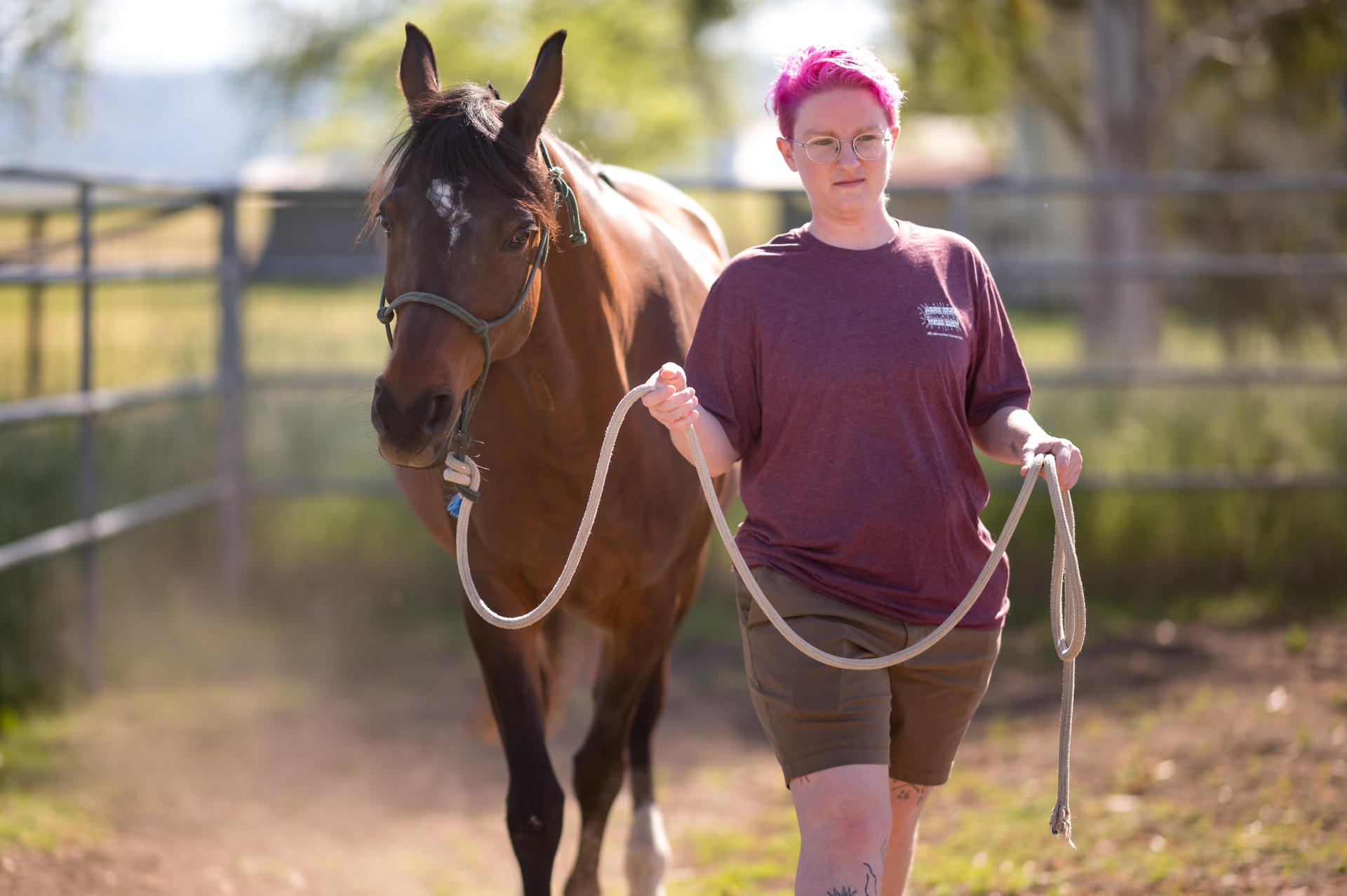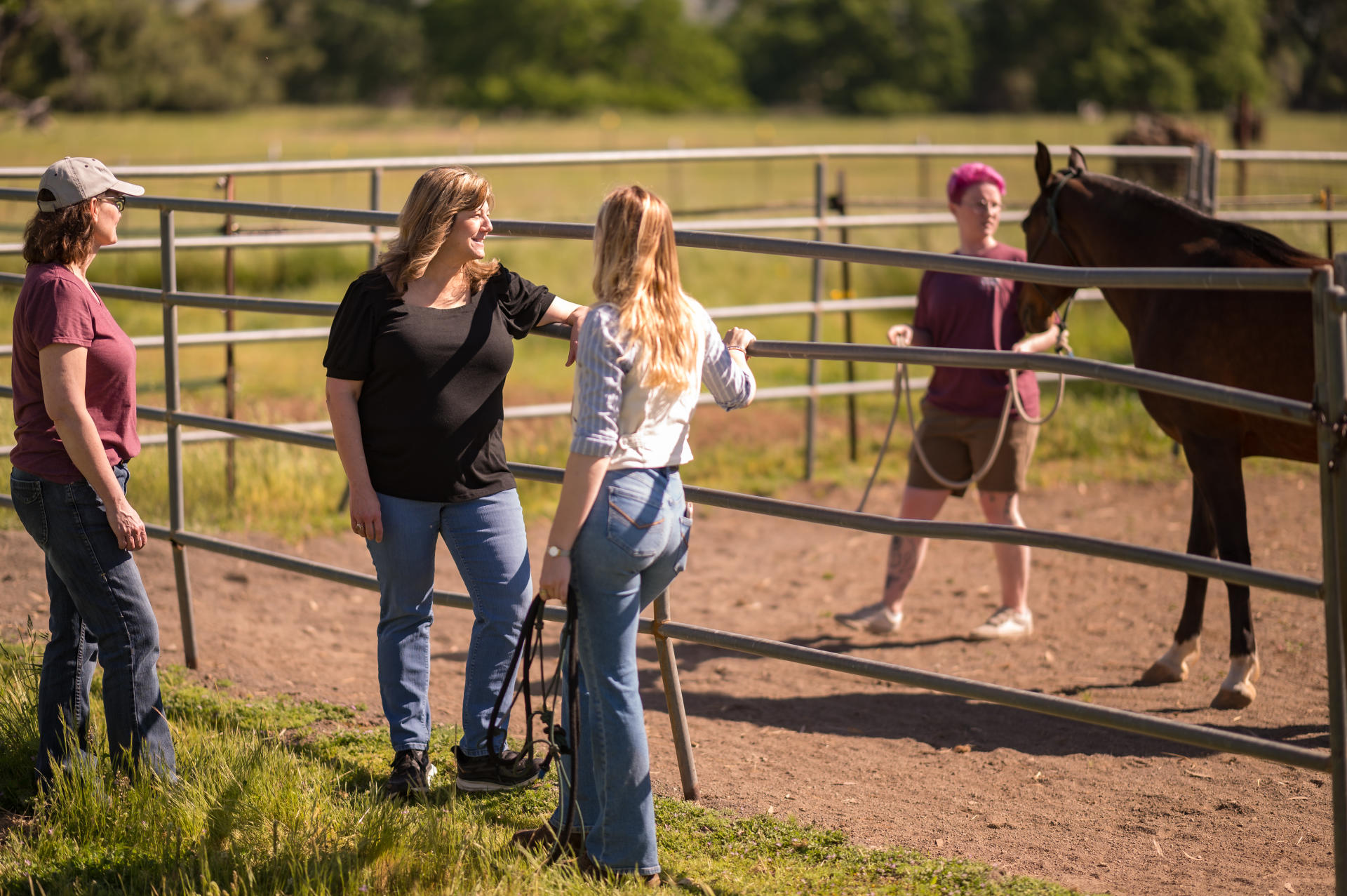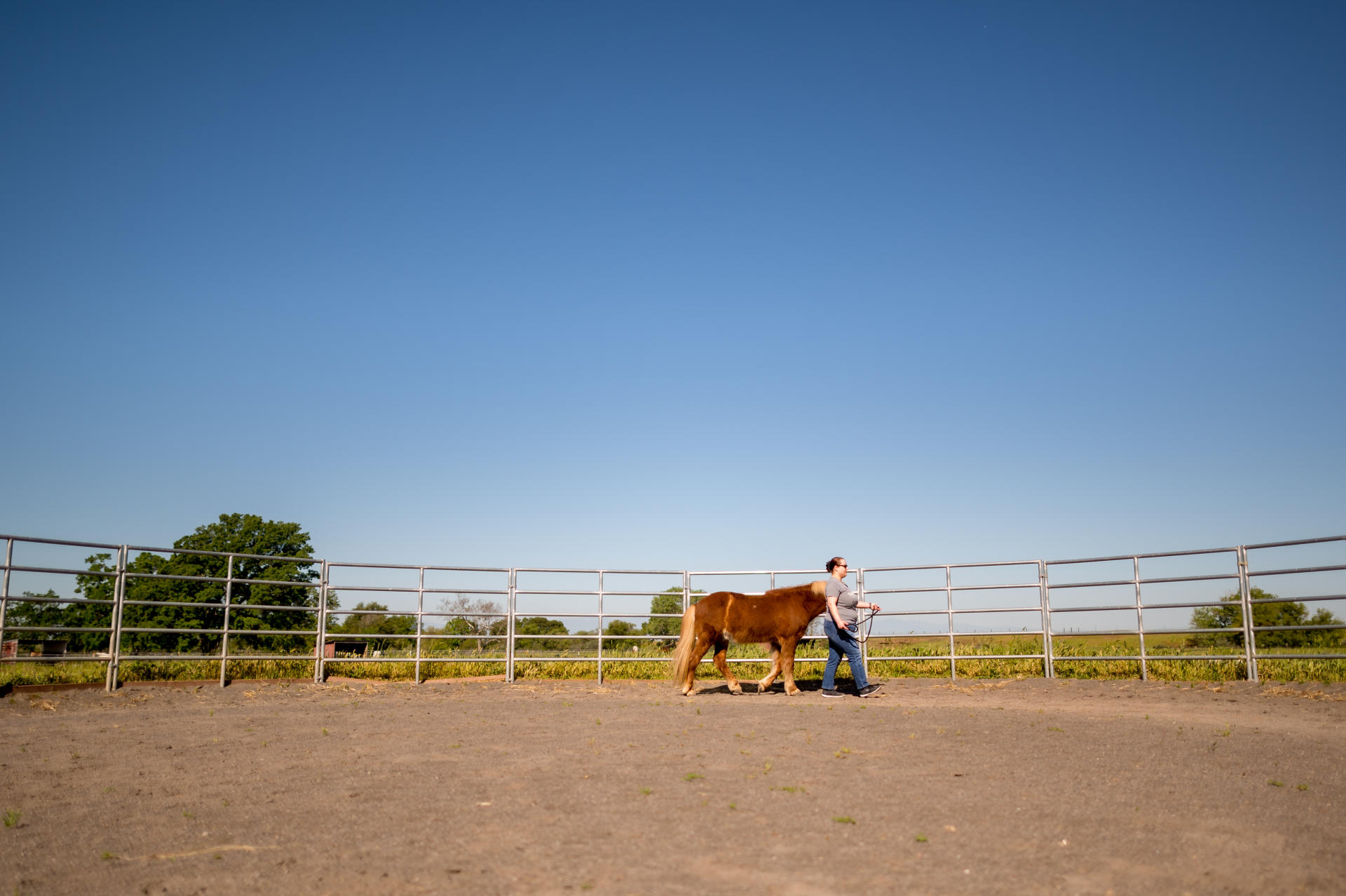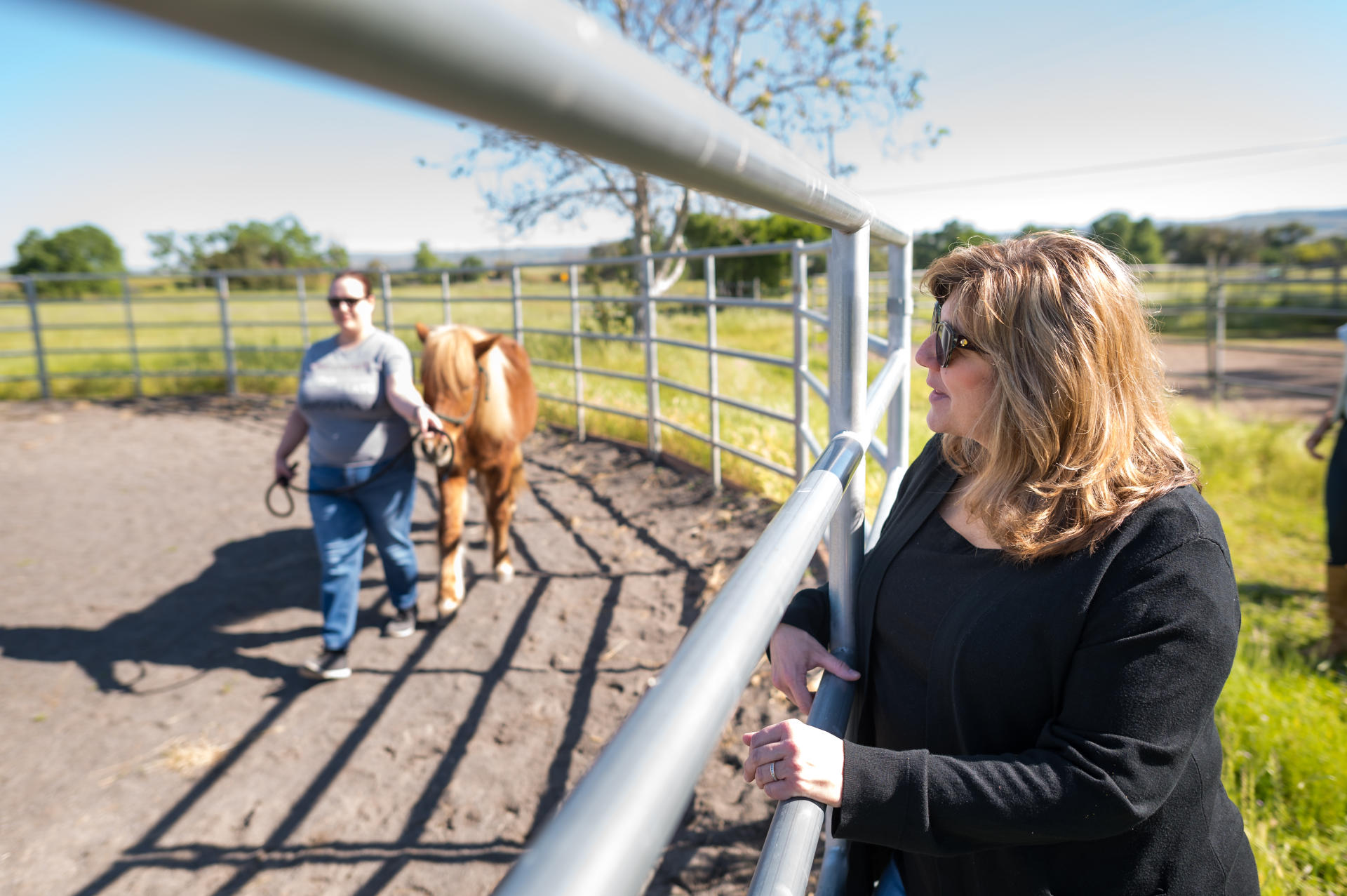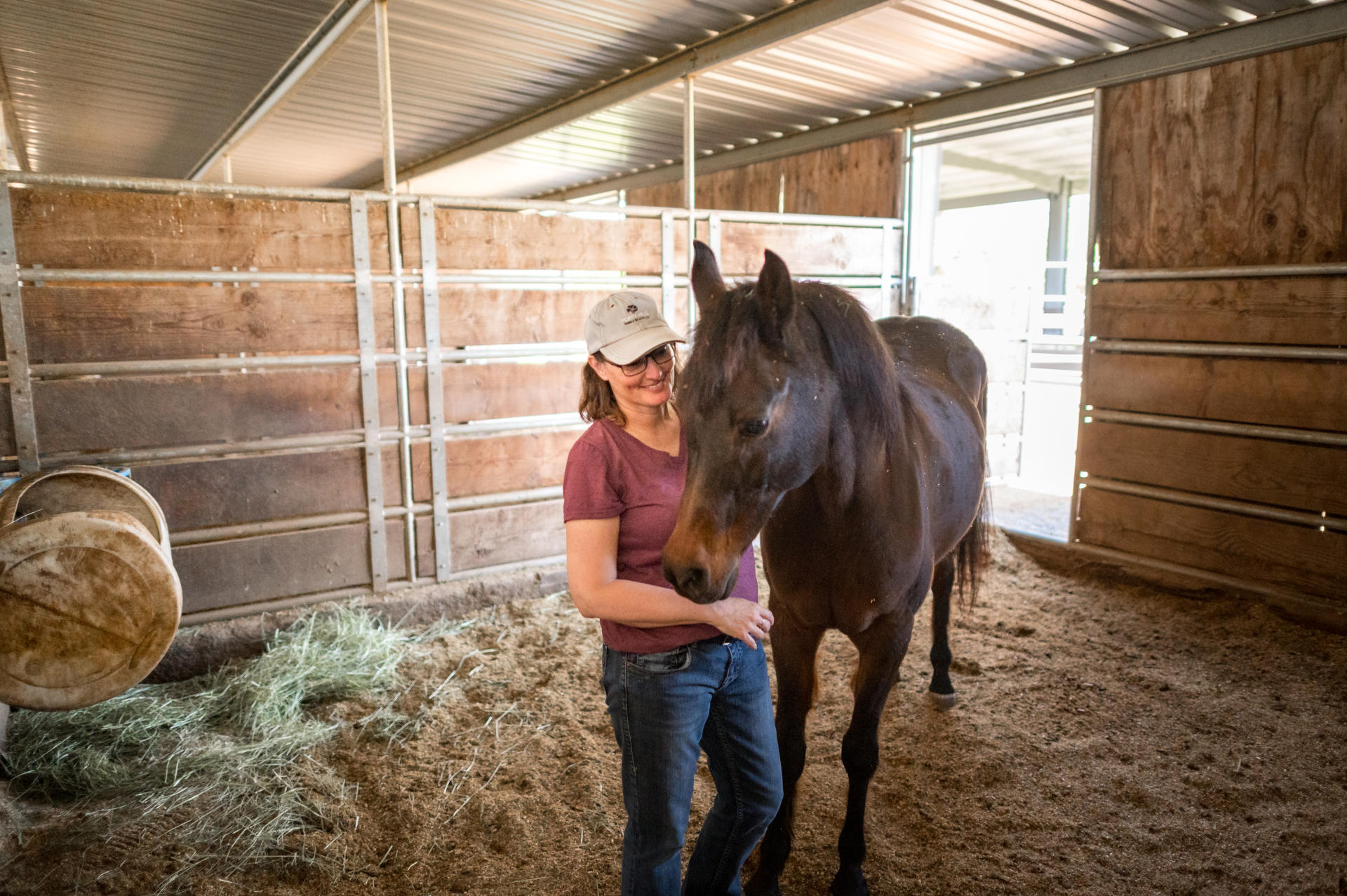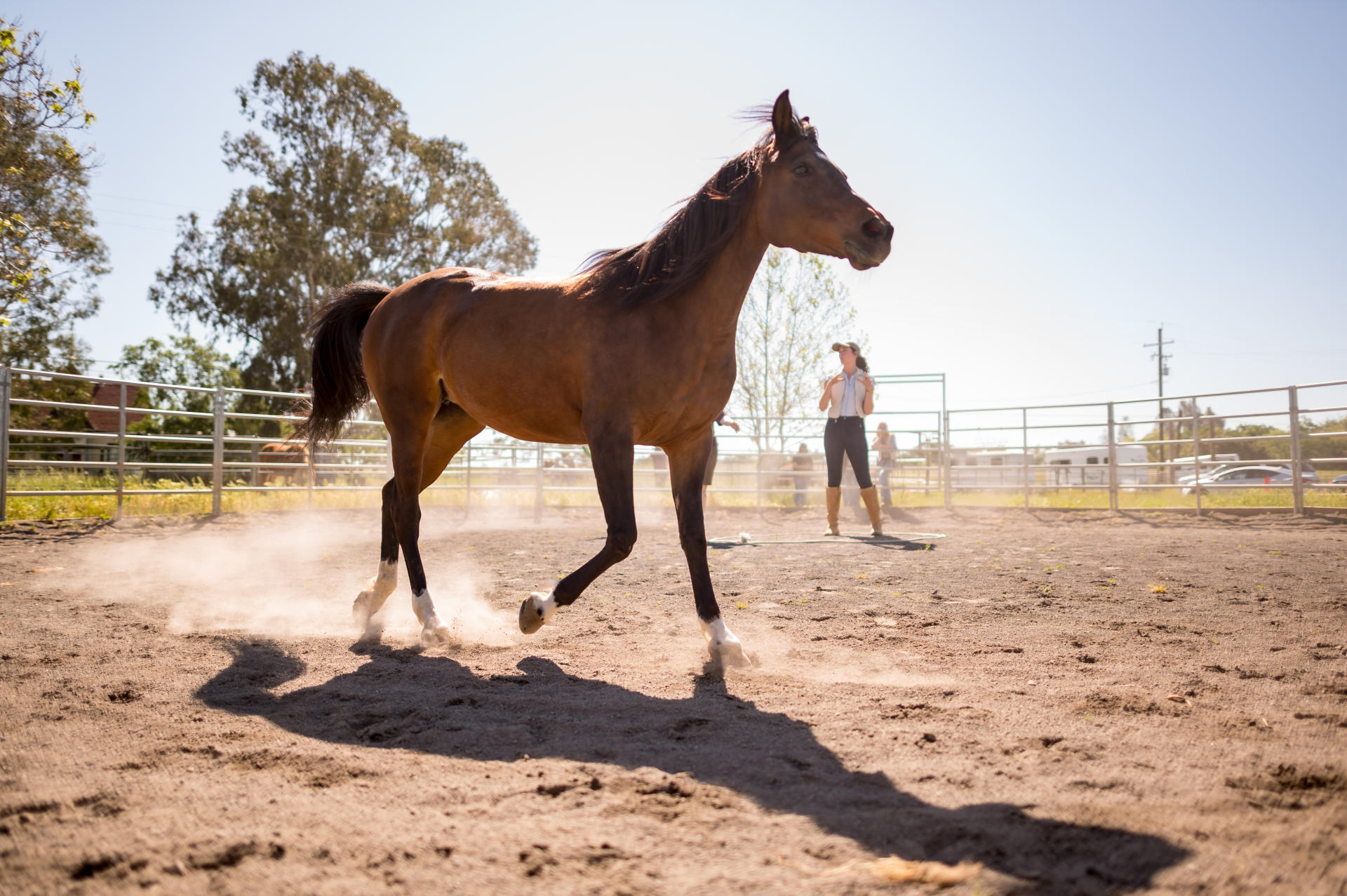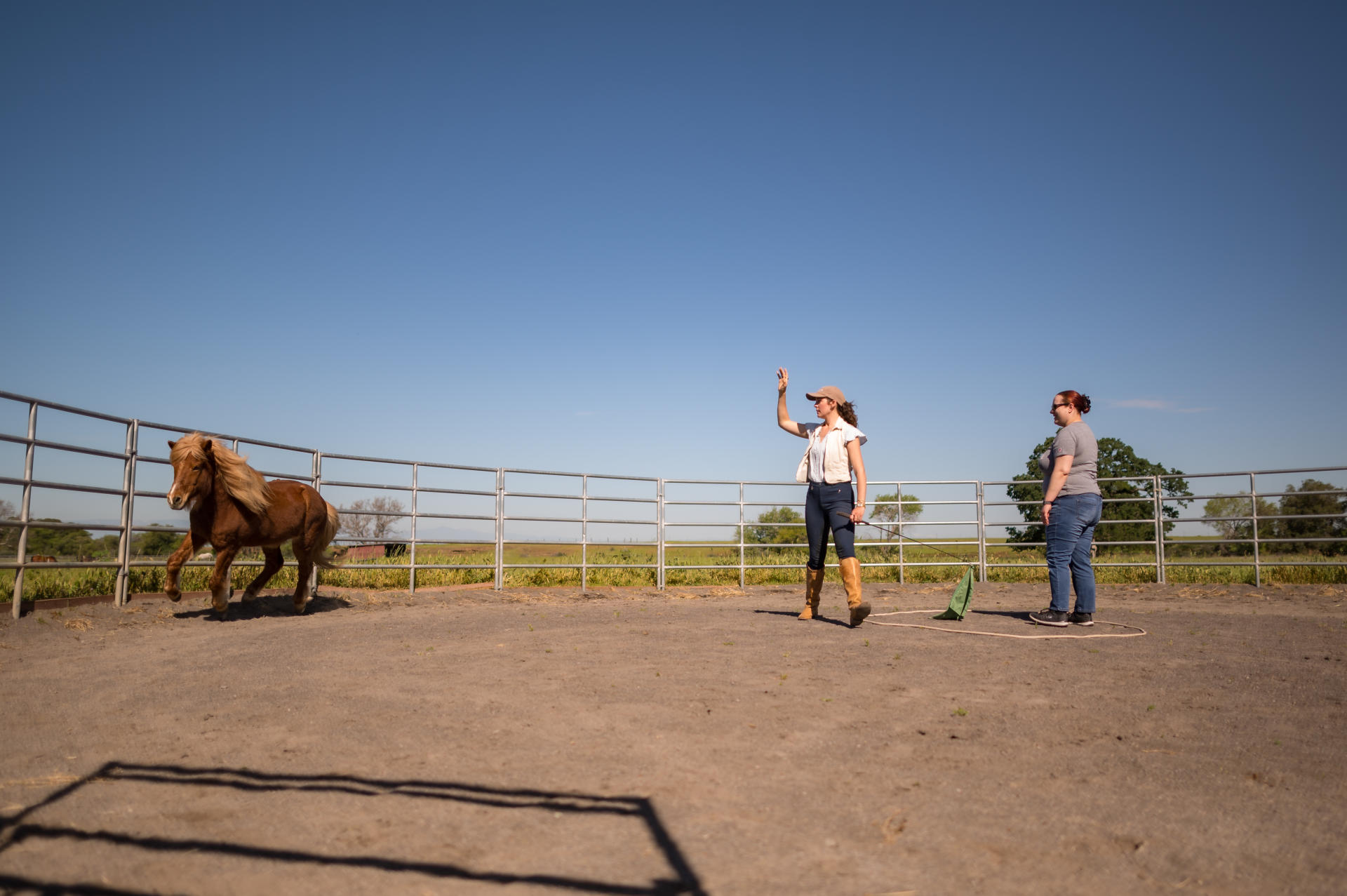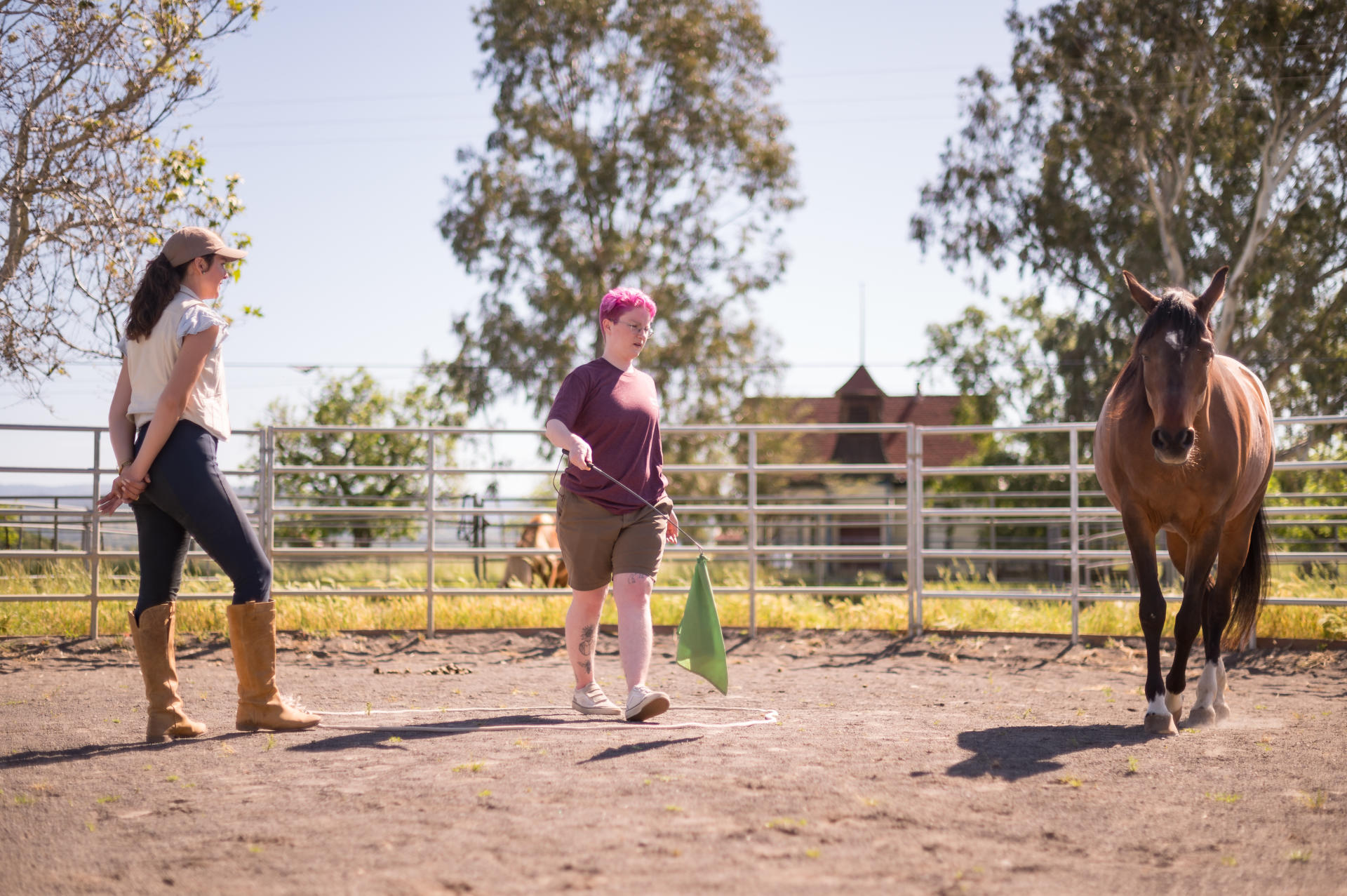Learning Experience Helps Students Build Confidence by Connecting with Horses
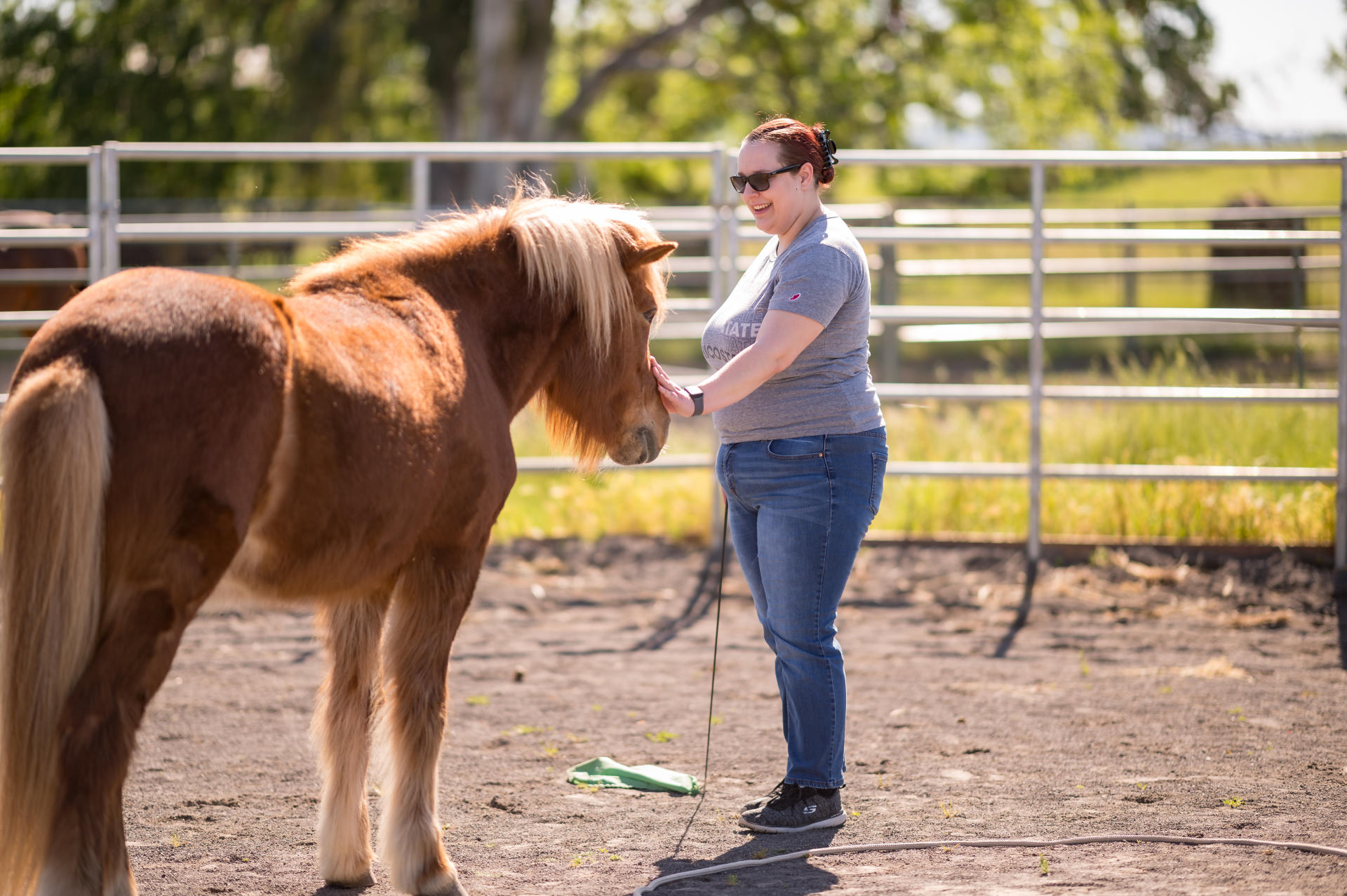
Chico State’s School of Education (SOE) has always looked for innovative ways to support education students through a variety of means, including experiential learning opportunities.
One of the latest opportunities in development is an equine-assisted learning experience that allows students to practice and hone their communication skills by working with horses.
In 2021, Sheltering Oak Farms (SOF) partnered with Fair View High School to launch Equine Connection, a program to help students focus on managing emotions and staying present in challenging situations. The program was carefully and intentionally designed by SOF owner Pam Farly and her daughter, Alexandra Casani, SOF’s lead manager and coach.
“We’re working on emotional regulation-based work tailored specifically to individual needs,” Casani said. “The horse is a direct reflection of the person working with it, so the way that person shows up determines how it all goes.”
Farly noted that the students they work with must learn how to raise or lower their energy based on the horse’s needs. “We use a lot of different methods to teach the students how to get the horse to listen to cues,” she said. “If you can’t get somebody to regulate the horse’s energy … that’s what we need to work on.”
Since 2021, Equine Connection has expanded to include partnerships with other local schools, including Chico State’s SOE.
It was Professor Jennifer Oloff-Lewis who first saw the value of the Equine Connection program for SOE students. Oloff-Lewis was the principal investigator, or program lead, of the Computational Literacy Across Secondary Settings (CLASS) grant program. CLASS residents are students pursuing a master’s in teaching and California teaching credential. The program was funded through a Teacher Quality Partnership grant and accepted its last residents in spring 2024. While the program is no longer active, a new residency, the Belong, Engage, Support, Transform (BEST) program began this fall and will continue the work and goals of CLASS.
In spring 2023, Oloff-Lewis initiated a partnership with SOF that resulted in a six-week equine-assisted learning experience aimed at helping CLASS residents build communication skills that would benefit their careers as future educators.
As teaching residents, the students work full time, four days a week at a school site, where they help plan and teach coursework alongside dedicated teacher-mentors. Much of what the residents learn while working with the horses can directly be applied to the classroom.
“The horses mirror your feelings and intent,” Oloff-Lewis said. “You have to be fully intentional when working with students in a classroom, so when you have this thousand-pound animal mirroring you saying, ‘You’re not focused,’ or ‘Your command isn’t clear,’ you really have to work on your presence and communication.”
The equine-assisted learning experience has proven to be a beneficial resource and opportunity for CLASS students.
“This experience has shown me how much your presence in the classroom matters,” said CLASS student Noelle Beltz. “How you act and react to things in the classroom affects how students react to you. Horses are very self-aware—if you aren’t clear with your communication, they will do something you don’t want them to do.”
Megan Knaus, another CLASS resident, noticed a boost in their confidence thanks to the equine experience.
“Sometimes my emotions will heighten and the horse senses that, so I just have to be able to take a deep breath, relax my shoulders, and center myself, which helps to regain control of the situation and helps me move forward,” Knaus said.
SOE Professor Rebecca Justeson, an expert in understanding trauma and resilience, helped refine the goals of the equine-assisted learning program. The experience will be worked into the new BEST program, in addition to other forms of professional development.
“The BEST program has a dual focus on preparing teachers to foster student academic development, while also fostering belonging, school engagement, and wellness,” she said. “We want experiential components and teacher coaching components built into the program as well—like the equine-assisted learning experience.”
The teacher coaching sessions Justeson developed are designed to help teachers maintain their own well-being. “You can’t talk about helping kids without providing care for the teachers as well,” she said.
Teacher coaching could cover a variety of topics, such as how to set boundaries or create structure in a classroom.
“We know that kids thrive off consistency,” Justeson said. “When there’s a consistent structure, then they can relax within the structure, and you can build relationships within a structure.”
Since that same concept applies to working with horses, the equine-assisted learning experience will be woven into future teacher coaching sessions as well.



